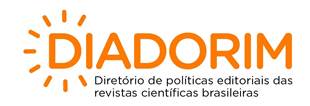Improvement in the quality of care for patients with headache treated in emergency units in a private hospital network
Views: 556DOI:
https://doi.org/10.48208/HeadacheMed.2022.Supplement.53Keywords:
Analgesics, Opioid, Headache, Emergency service, PrescriptionsAbstract
Introduction
Patients with headache complaints are among those who most frequently seek care in emergency units. Unfortunately, the assistance provided to these patients frequently does not reflect the best scientific evidence, compromising clinical results and exposing patients to unacceptable risks and unnecessary procedures. Among these errors, we cite the high rate of prescription of opioids for primary headaches, the excessive number of unnecessary CT scans, high stay rates in emergency units, and high rate of hospital admissions.
Objectives
To evaluate changes in care outcomes after beginning a care protocol in a private hospital network.
Methods
We evaluated all the headache data in the emergence units of Americas Serviços Médicos, a private hospitals network with 18 units distributed in 3 regions of Brazil. Headache was identified in the electronic medical record system through the international code of diseases (CID). The following data were collected: rate of opioids prescription, rate of TC scan, time of stay in emergence room, hospitalization rate, and hospital length of stay. Data were collected in the four months before the protocol (pre-protocol) and in the last four months (post-protocol). Categorical data were evaluated with chi-square and continuous data with unpaired t test.
Results
The data of 9,060 patients in the pre-protocol and 8,828 patients in the post-protocol periods were assessed. The rate of opioids prescription reduced from 19.9% to 18.5% (P=0.0173). The rate of CT scan was 16.75 in pre and post protocol periods P=1). The stay time in emergence room was 227.46±61.07 minutes in the pre and 196±16.11 in the post protocol period (P=0.37). The rate of hospitalization increased from 1,53% in the pre to 2.24% in the post protocol period (P=0.005). The length of hospital stay reduced from 5.9±2.2 in the pre to 3.5±0.6 in...
(To see the complet abstract, please, check out the PDF.)
Downloads
Downloads
Published
How to Cite
Issue
Section
License
Copyright (c) 2022 Renan Domingues, Márcio Nattan Pontes, Marcelo Calderaro, João José Freitas de Carvalho, Saulo Ramos Ribeiro, Evelyn Pacheco, Daniel Bezerra, Gustavo Kuster

This work is licensed under a Creative Commons Attribution 4.0 International License.












